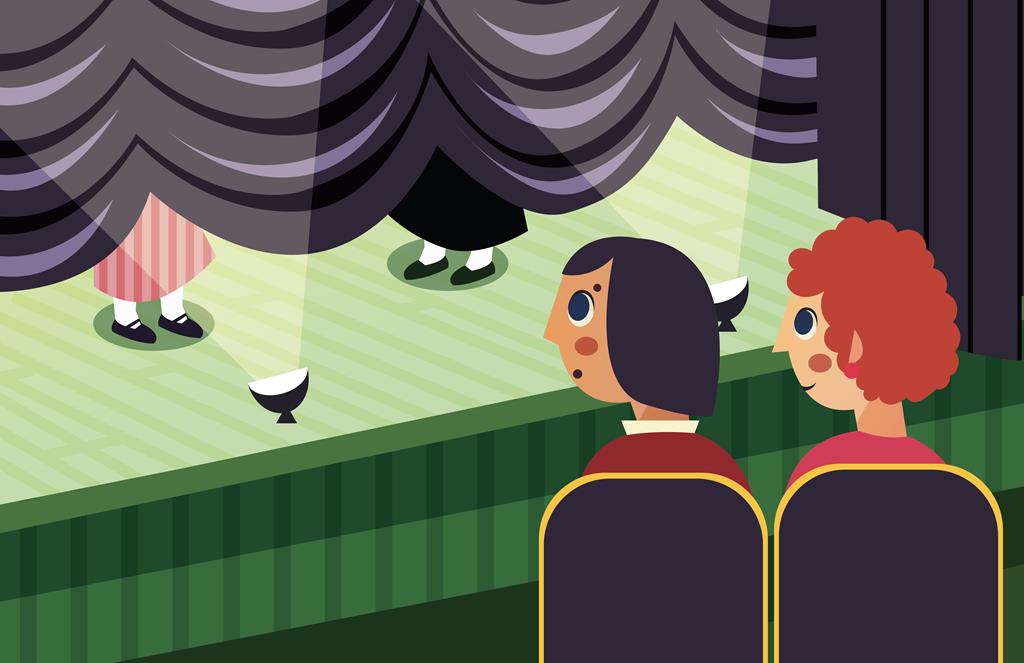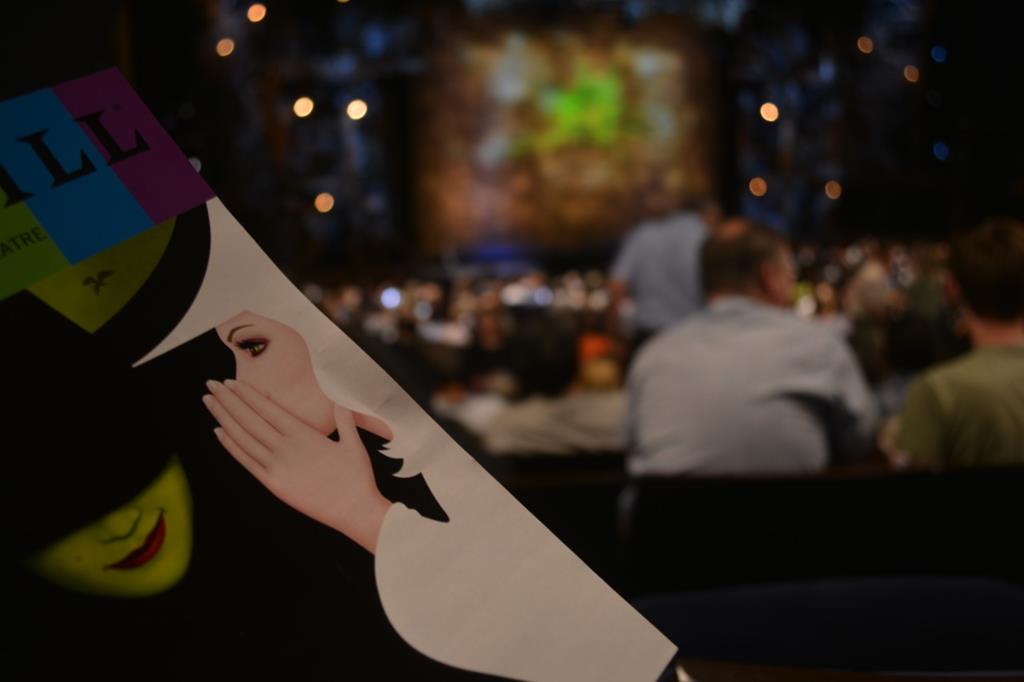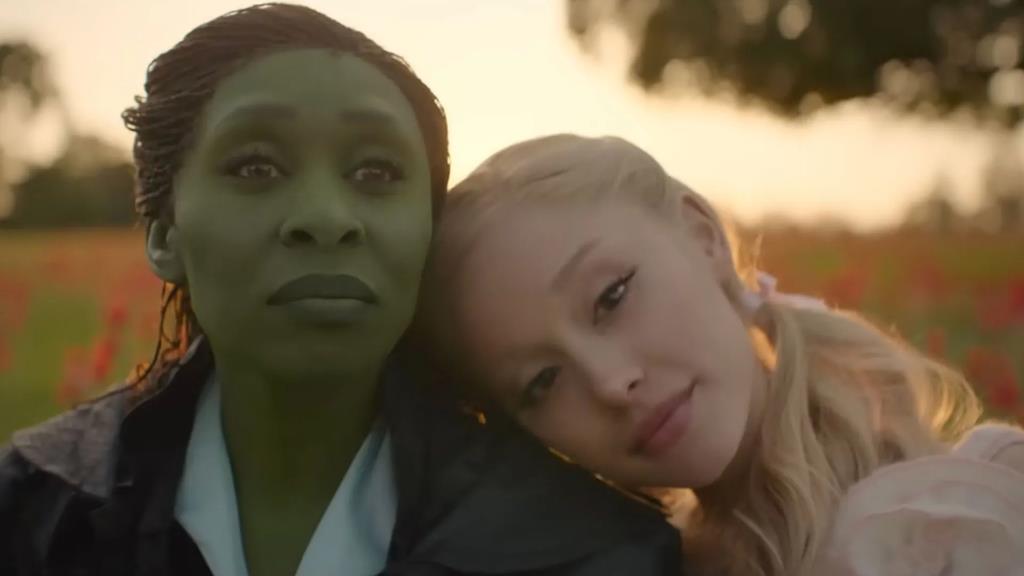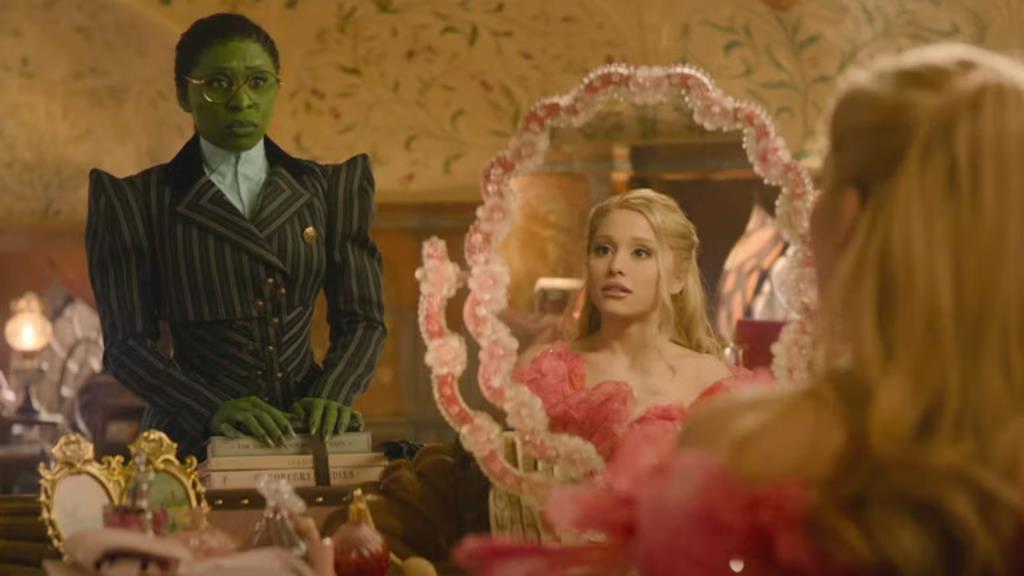What does it feel like to fulfill a dream?
On Nov. 22, 2024, almost 10 years after the announcement of the Wicked (2024) film adaptation — and after surviving many setbacks — the long-anticipated movie finally arrived.
Not that I waited until this date, of course. As soon as the early screening news dropped, I booked my tickets for the Nov. 20 premiere. How could I not? After all, this was indeed my dream.
What is Wicked? Wicked is an alternate take on the beloved fantasy story of L. Frank Baum’s The Wonderful Wizard of Oz (1900) and its subsequent 1939 film adaptation. However, in Wicked, the protagonist isn’t naïve, small-town girl Dorothy, but rather the Wicked Witch of the West, Elphaba, who is sentenced to death by Dorothy via a bucket of water (if you don’t know, witches are highly allergic to water).
Gregory Maguire’s fantasy novel Wicked: The Life and Times of the Wicked Witch of the West (1995) is a revisionist retelling of the original The Wonderful Wizard of Oz book, and affectionately referred to by fans as the ultimate fan fiction. The novel encourages us to look beyond what our eyes see, beyond the narratives we are fed, and beyond those in power telling us who the wicked ones are.
The book asks questions such as: who was this green witch when she was young? Was she always “wicked,” or was it a choice? What if she had met the Good Witch of the South, Glinda, at school? What if they were enemies forced to be roommates, and what if they actually became friends? The Wicked novel is dark, explicitly adressing themes of sexual assault, war, and racism, far from the lighter tones of its 2003 musical theatre adaptation. Composer and lyricist Stephen Schwartz, and script writer Winnie Holzman might have been softer in their delivery than the novel, but their changes made Wicked easier to digest and targeted a wider audience than the book had — which doesn’t make it better or worse; it’s just different.
In a way, that’s the beauty of adaptations. It allows us to explore how a piece of media translates from one medium to another, how it is portrayed at different cultural, political, and social moments in time, and what that means to audiences both presently and historically. The music, as it turns out, was ultimately how I found the story of Wicked, or rather, how it found me.

I’ve always loved music, but it wasn’t until the week of my 15th birthday, when I got sick and temporarily lost my sight, that I truly grasped the vastness of sound. Back then, I had already been carving my path toward the film industry as a tiny, mighty screenwriter, but passion doesn’t protect your dreams, and words of comfort matter little when all you see is darkness.
And yet, in darkness, I found my one true love: musicals.
I couldn’t see, but I could hear. And what’s a better way to listen to a story than a musical?
After listening to Broadway legends Idina Menzel (Elphaba) and Kristin Chenoweth (Galinda/Glinda) interpret the symphonic perfection that is “Defying Gravity” — Wicked’s most revered song and designated one of the most difficult Broadway songs of all time — I was instantly hooked.
Wicked’s musical narrative and layered story explores how it feels to be othered, but also what it’s like to find a soulmate in the process; it explores the disillusionment of crushed dreams, and the dissonance between the harsh truths of life and what we were once told was true — all things that resonated with my young, sick, and dramatic self. The story made me feel seen and inspired me to find the courage to let go of external expectations and embrace all of myself.
So, I made a bucket list. At the top of that list was to visit New York’s Broadway and see Wicked. Against all odds, I dared to dream as big as one does when one internalizes that life truly isn’t forever and that there are still things worth experiencing. This dream kept me going.
Almost four years and a furious saving plan later, there I was in New York City, roaming the busy, cosmopolitan streets and feeling like I had stumbled into a movie. Times Square looked exactly like it was shown in every film I saw. My mother and I walked around until we arrived at the Gershwin Theatre, ready to buy tickets for Wicked on Broadway. Finally.
I still remember when the first notes of “Overture/No One Mourns the Wicked” hit. As I let my tears fall, I basked in the awareness that despite my sickness, I was still here, alive. I could see and hear, and I was fulfilling my dream. There is nothing quite like the profound sensation of completing a dream, even if it only lasts for a beat.

The show was incredible — I fell in love with it even more after watching it in person. My favourite song, “Dancing Through Life,” had a section beyond what I had heard in the soundtrack. A dance between the leads: a dance of bravery, of mutual understanding, of shared humiliation, but also the strength to overcome it. Of course, being part of the 2SLGBTQIA+ community, I couldn’t help but notice the queer-coded undertones it had, something that most definitely came right from the book’s more liberal thematic development.
The discrimination against outside-the-norm characters, the spiel of hatred that sought to silence and strip the rights of a misunderstood and vulnerable part of society were cleverly depicted, and coming from the corruption, cruelty, and conservatism of a country like Peru, how could I not feel a kinship with these themes? This is not to say this story is only for those facing these struggles, but this is how it spoke to me.
Clearly, I wasn’t the only one struck by its greatness, as my mother — who was not particularly versed in English and barely understood half of what was said — was bawling her heart out, sobbing next to me as soon as part one was finished.
It’s funny how music can do that to someone; it is its own language, and it doesn’t matter that words are not the same because the meaning and soul can still be so clearly communicated. This is a musical that has been on Broadway for over 20 years — it certainly must be doing something right for this to be the case.
That day in February 2015, my hope was renewed in the Gershwin Theatre and my motivation to move forward was reaffirmed. I mean, isn’t that how you survive?
I adored this story, and I wished everyone could see it. But coming from a country with a weak currency and one with little respect, and much less support for art, I was well aware of what a privilege it was to attend one of these shows. And movies, though still a privilege, could reach more people. I could see it then, how wonderful it would translate into a movie adaptation, and I dreamed so much for it to happen.
Knowing that they had already announced the movie adaptation back in 2016, and that it was allegedly in progress, gave me a push when I needed it. It became my go-to when I was depressed.
I have a tough time finding motivation, but I don’t think I realized this at first. However, having my life do a 180 when I got sick, and having all my expectations and dreams put on hold took a toll on me. It resulted in a lack of direction and incentive. I don’t always have it in me to keep moving, to keep playing this ridiculous game and, even worse, pretend I’m not considering stopping altogether.
The truth is, Wicked had saved me once, and I thought it could keep saving me. So, I held onto hope for Wicked’s movie adaptation.
To me, the promise of the film’s release was what helped me the most. It represented the little dreams that keep us going. Something that may seem foolish and unimportant, but is subconsciously what makes life worth living. Anticipating the Wicked movie adaptation was my coping mechanism. I found shelter in that little comfort.
With the change in director, COVID-19, the actors’ strike, the continuous flop of musical adaptations, and the decision to split the movie in two, it seemed it would never happen. But at this time, I wondered, would it be such a bad thing when it kept extending my motivation?

Then, on Nov. 20, 2024, almost 12 years since its first announcement, 21 years since the Broadway premiere, nearly 30 years since Maguire’s book, and 124 years since The Wonderful Wizard of Oz, Wicked was finally here.
And it was so heartbreakingly perfect.
The movie was funny, sad, and so very heartfelt — as only something done with love can be. Arguably, the best thing about this adaptation was its casting. Cynthia Erivo and Ariana Grande-Butera were undeniably brilliant for the leading roles of Elphaba and Glinda. Their raw talent and natural chemistry — both acting and musical-wise — were truly off the charts. I was never a fan of Fiyero as a character, but boy, Jonathan Bailey is dreamy. I could hear half of the movie theatre sigh every time he smiled; who am I kidding? I sighed alongside them.
The production design was so exquisitely crafted that I have zero doubts about the number of technical nominations this movie will get. The detail in the sets, costumes, makeup, and choreography were such a love letter to art. Every book reference and even off-stage reference was delightful and added to the development of the story’s central theme.
I was admittedly worried about the score after hearing some of the music in the trailers, but colour me surprised when this movie revealed the actual mix of the songs, infinitely better than the misleading, over-produced leaks.
I can’t express enough how hard my heart was trying to break out of my chest when “Defying Gravity” kept building up and up and up. Despite the pitchy audience member who felt it appropriate to sing in the middle of one of the best closing acts in the history of musicals and had me considering the legality of murder in B.C., I enjoyed it so much.
This appreciation of the music comes despite watching the film with the surround sound off and every sound shoehorned into the screen speaker (a complete disrespect to the sound designer). Wicked movie director Jon M. Chu recently took to X to encourage movie-goers to request an increase in volume when watching the film.
“Tell your movie theater to turn it up to a 7… I’ve gone to a couple screenings and they are more like a 6.4. If you want it the way it was intended, 7 is the way.”
And if there’s a movie that’s worth experiencing the way its technical aspects were intended … there’s actually a lot, (I love films) but this one is certainly included in that list.
My favourite scene featured my favourite musical number: “Dancing Through Life.” The moment Glinda and Elphaba dance was elevated in the most cinematographic way possible, using all that makes films different than plays, with lighting, shots, and an enviable sound mixing to enhance the experience. This dance, called the “Ozdust Duet,” had an orchestration that foreshadowed their farewell and rapport song “For Good,” masterfully depicting a leitmotif in music that will come full circle in part two —- musical narrative at its finest. While this isn’t the only time they musically foretell their sincere connection, it was by far the most obvious, and it’s a reflection of the movie’s attention to detail. People think fans are biased with our film criticism, but are we? Or are we the pickiest and most protective of the content we’ve loved for decades?

As it stands now, it does deliver, although I must admit that even having fixed many of the plot holes that the play has, it has yet to make me a fan of the love triangle that happens. The relationship between Elphaba and Glinda, be it platonic or otherwise, is thoroughly and beautifully developed. In comparison, their shared straight love interest feels shallow and almost unnecessary for the overall plot. This movie should be gayer, and I will die on this hill. This argument has been affirmed in Grande’s statement on her interpretation of Glinda:
“Glinda might be a little in the closet.” The singer said to Gay Times YouTube channel.
The sentiment was shared by the OG Glinda, Kristen Chenoweth, who stated, “I thought so too way back when.”
Both Grande and Erivo described this relationship as “true love,” and it makes one wonder if Fiyero’s romantic subplot isn’t actually another case of compulsory heterosexuality.
Is the Wicked film better than the stage version? Is the stage version better than the book? Is the book better than The Wonderful Wizard of Oz? All pointless questions because these are all different and lovely in their own way. I will say this: it is, in fact, a worthy adaptation of its first act, and I can’t wait for the next one.
I can’t analyze this movie as a whole just yet. I felt the same way I felt when I watched Back to The Future (1985): I need the second one ASAP. I’m hoping I’ll like it as much as the first one. But what’s life’s prerogative if not to eternally hope? So, I guess here comes the longest intermission I’ve ever experienced.
Wicked saved my life the first time I heard its soundtrack, it saved my life that day at the Gershwin Theatre, and every day since the movie adaptation was announced. It’s always been my first thought when I remind myself that I have things I genuinely want to enjoy. “I gotta hold on until the Wicked movie.” And I have. I want to take a moment to appreciate that. I want to take a moment to remember some of the stories that fans shared online, of the parent who had his son’s headstone engraved with the “Defying Gravity” lyrics because the little guy loved it; of that sibling who never got to take their sister to watch the film that they both dreamed of when I had the chance to bring mine. I want to take a moment to appreciate that I made it, because sometimes dreams keep you alive, and sometimes dreaming isn’t enough.
What a fortune it is to get to fulfill one’s dream.
There’s a moment of sadness that comes right after you do, though, and it makes me wonder once more what comes after. There are no more adaptations to hold on to, no more safety blanket, no other dream to whisper, “Stay, it’s worth it.” What happens when that’s come and gone?
What’s next?


